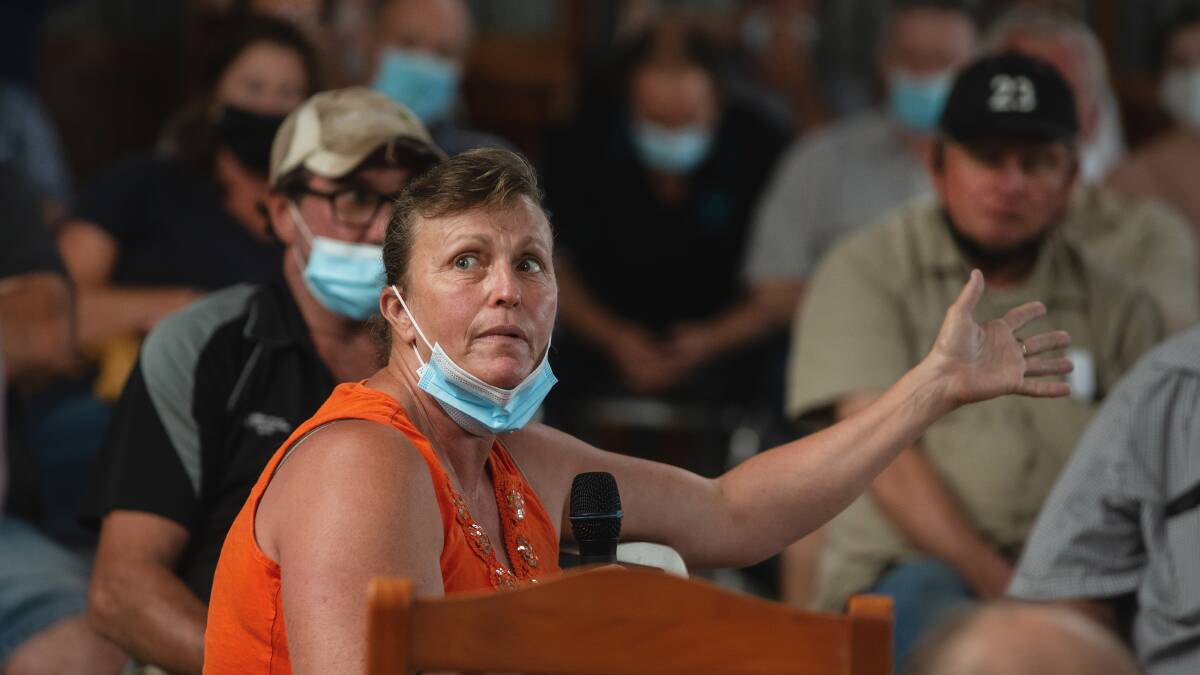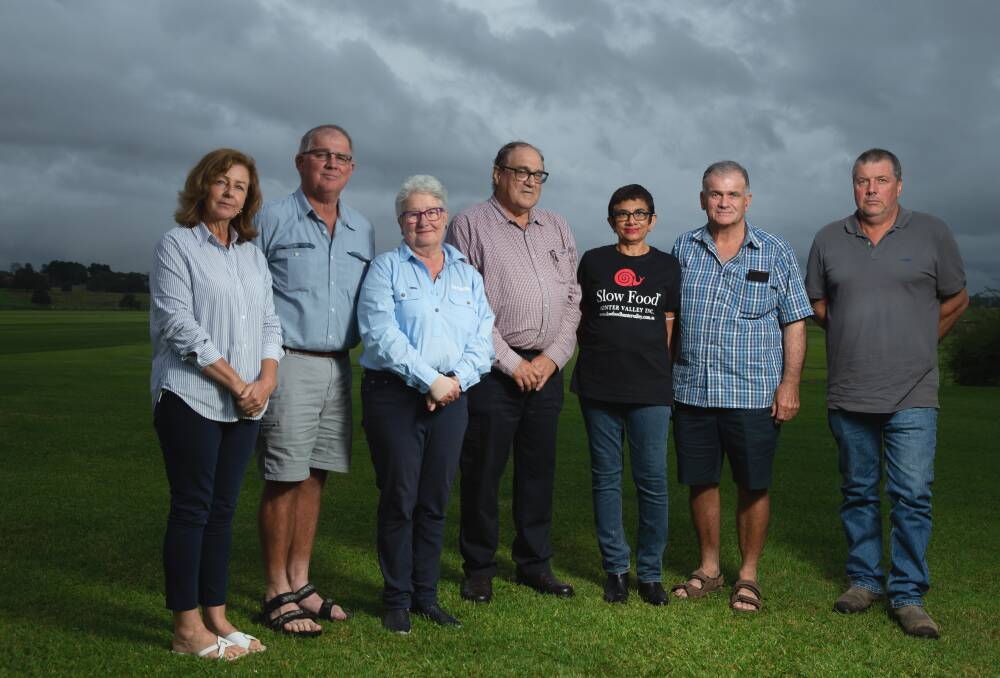Around 120 Maitland farmers, community members and councillors gathered in a public meeting Friday evening concerned about a NSW government plan to restrict the amount of water irrigators would be allowed to draw from the Hunter River during the summer growing months.
The proposed "cease to pump" rule was included in a draft NSW Planning and Environment Department management plan for unregulated water use on the Hunter River, which has been made public for community feedback until February 27.
The proposed restriction would invoke a blanket order to upstream farmers to stop drawing irrigation water from the river's tidal pools when salinity levels reached a triggering threshold further downstream near Miller's Forest.

The government says the restriction would bring Hunter River water users "in line" with other users across the state, and would safeguard the downstream fresh water supply by combating rising salinity levels.
But, generational farming families of Maitland's food bowl, who have been irrigating from the Hunter River for almost a century, say the government's plan applies a one-size-fits-all solution to a nuanced issue, and fails to take into account the long-term impacts such a blanket restriction would have on their properties and livelihoods.
At worst, they argue that the imposition of a stop-pumping rule would render their entire industry unviable, devastate the local and regional economy, and wipe out the region's summer crop, much of which services markets in Sydney, Newcastle and across the state.
"It's a very stressful time for a lot of people," Pitnacree farmer Sam Osborn said Saturday, "(The rule) will have disastrous effects. We're talking, agriculture in the Lower Hunter will stop."
(The rule) will have disastrous effects. We're talking, agriculture in the Lower Hunter will stop.
Pitnacree farmer Sam Osborn
The state government maintains that the proposal is supported by numerous studies which showed that water extraction was causing a "salt wedge" to move up the Hunter River during dry periods, and that preventing rising salinity was crucial to maintaining the downstream fresh water supply as well as protecting upstream ecological values.
But, farmers say they have already been managing salinity levels themselves for generations according to the sensitivities of their crops to salt in the water they draw.
"We have always self-managed our salt at each farm," Ms Osborn explained, "We all know what we can and cannot do. Our family has done it for 90 years.
"But this rule is like a one-size-fits-all, and it is set quite low in the region. So, where (the rule) comes in, we could still be pumping."
Ms Osborn said it was not only the farmers who stood to lose, should the government's plan be imposed; the whole region would potentially feel the effects of the fallout.
"We survive on our farm," she said, "But we all have employees, and we all have contractors and suppliers, and transport and fuel distributors. It's a flow-on effect for the whole Maitland area. Then, there is also the produce; we supply food, milk, beef, throughout the whole state. We won't be able to produce anymore."
Friday's meeting of the Lower Hunter Agricultural Water Users Incorporated group heard farmers share their concerns about the draft plan, and was attended by Maitland's mayor, Philip Penfold, deputy mayor Mitchell Griffin and councillors Loretta Baker and Sally Halliday.
Ms Osborn also said MPs for Maitland and the Upper Hunter, Jenny Aitchison and David Layzell respectively, were unable to attend but had shown their support.

"It was a chance for everyone to get together and to understand what the state government is trying to implement," Ms Osborn said, adding that the meeting helped members understand "this will change our lives dramatically".
"It's such a significant thing," she said, "It's our future, and the future of our children. To be able to bring people together who are going through the same situation is, I think, very important."
The farmers will now prepare their submissions opposing the draft plan, including an online petition which has garnered around 1300 signatures, which will be submitted as part of the state's consultation over the next fortnight.







